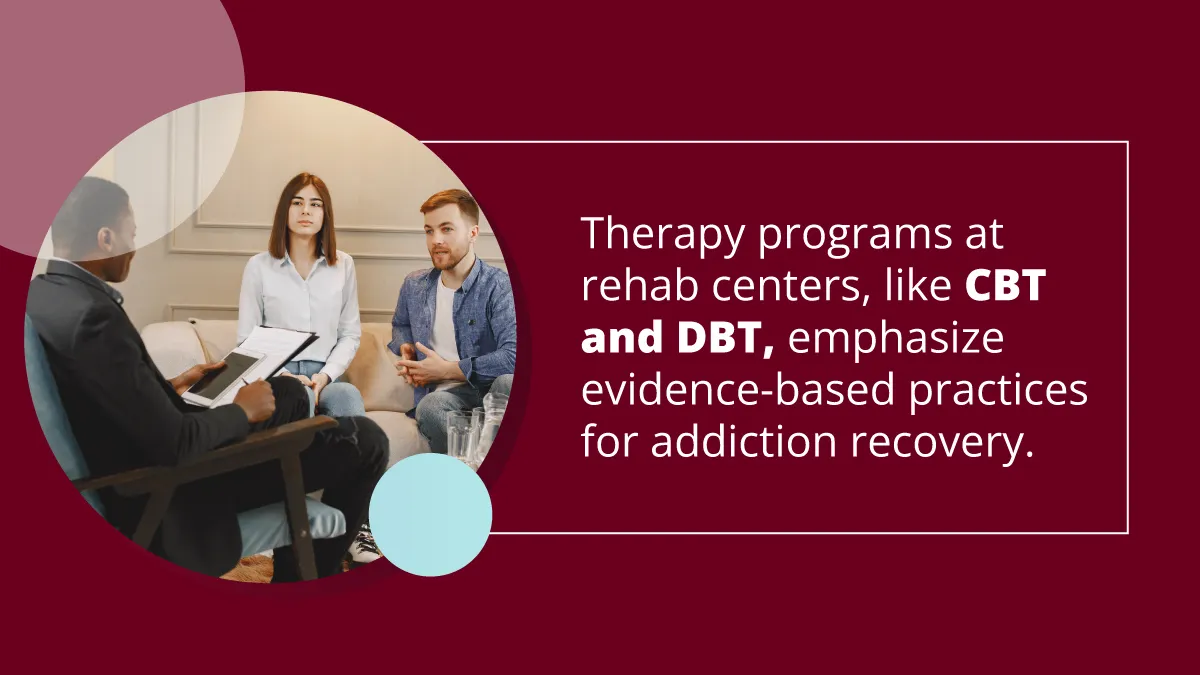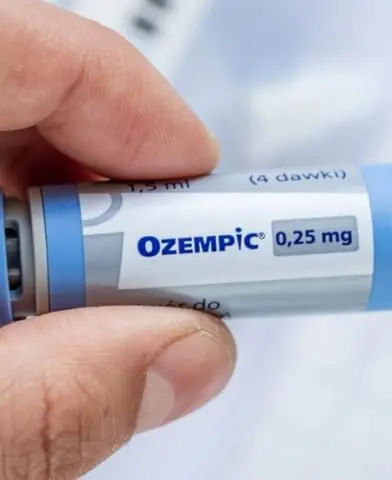
Drug and Alcohol Rehab Near Arlington Heights, Illinois
Clinically Reviewed by:
Like many other towns in the US, Arlington Heights, Illinois, has a drug and alcohol problem. These substances can harm people’s lives and health.
Rehab facilities offer therapy, counseling, and medical care to help people recover from drug and alcohol problems. These centers are safe places where individuals can find hope and start a new chapter.

Key Takeaways
Arlington Heights, Illinois, faces drug problems, but rehab centers provide hope and support for recovery. Here’s what you need to know:
- Different levels of care offer tailored treatment durations and options for individuals.
- Therapy programs at rehab centers, like CBT and DBT, emphasize evidence-based practices for addiction recovery.
- Many people benefit from a change of scenery during recovery.
Indiana Center for Recovery is here to provide services for a stable life. Call us today at (844) 650-0064 to learn more about our services.
Rising Addiction and the Importance of Rehab Centers
Arlington Heights, Illinois, is facing a growing challenge – rising substance use disorders, including issues with opioids, meth, and heroin. Misuse of these drugs is increasing among teens, which has led to an increased need for treatment centers in the area.
One primary concern is alcohol addiction among individuals, impacting their well-being. Rehab centers play a vital role in highlighting these problems, offering support and treatment to you or your loved one struggling with substance use. These centers provide a safe space for patients to receive therapy and medical care, helping them overcome addiction and rebuild their lives.
Levels of Care and Duration of Treatment
Individuals grappling with substance abuse find a range of treatment options tailored to their needs at treatment centers. Understanding the levels of care and treatment durations available is crucial in guiding individuals toward recovery.
Medical Detox
Medical detox is often the starting point, helping individuals safely withdraw from substances under professional supervision. During this phase, a patient’s body gets rid of toxins, and the body stabilizes without relying on drugs. This critical phase ensures a safe and comfortable transition into the treatment process.
Residential Rehab
For a holistic approach, residential rehab provides a structured environment, typically lasting 30 to 90 days. This immersive experience in a residential treatment center fosters a supportive community where individuals receive around-the-clock care, behavioral therapies, and mental health services. The duration varies, recognizing that each person’s journey to recovery is unique.
Outpatient Care
Outpatient treatment offers flexibility, with less than 9-10 hours per week. This option allows individuals to receive therapy and support while maintaining their daily routines, such as attending school or going to work. It is a valuable choice for those who may not require 24/7 supervision but still benefit from regular guidance.
Partial Hospitalization Program (PHP)
Also known as “day programs,” these intensive programs involve 6-8 hours of daily treatment. Partial hospitalization provides a structured yet less restrictive environment compared to residential rehab, offering a balanced approach to recovery. Choosing suitable rehab options requires the expertise of dedicated staff, guiding individuals on the right path toward recovery.
Therapy Programs at Rehabilitation Centers
In rehab programs, various therapy modalities are employed to address the unique needs of each client and promote recovery from substance abuse and mental illness. These therapy programs, tailored to individual treatment plans, emphasize quality care and evidence-based practices.
Cognitive Behavioral Therapy (CBT)
CBT is a widely utilized therapeutic approach in rehab programs. It focuses on identifying and changing negative patterns of thinking and behavior associated with the use of illicit drugs. Clients learn practical coping strategies to manage triggers and cravings, fostering long-term recovery.
Dialectical Behavior Therapy (DBT)
DBT combines cognitive-behavioral techniques with mindfulness practices. It helps clients regulate emotions and improve interpersonal skills. Moreover, therapists aid patients in tolerating distress without resorting to substance use. DBT is particularly effective for individuals dealing with mood disorders and self-destructive behaviors.
Individual and Group Therapy
Individual therapy sessions provide a private space for clients to explore personal challenges, set goals, and receive tailored interventions. On the other hand, group therapy offers a supportive environment where clients can share experiences, gain insight from peers, and develop coping skills. Both modalities complement each other, enhancing the therapeutic process and fostering community among participants.
Aftercare and Support Groups For Arlington Heights Residents
At rehab facilities, aftercare and support groups help you or your loved one to sustain your recovery from drug addiction and alcohol rehab. These programs, often continuing formal treatment services, cater to specific needs and provide ongoing support.
Support groups like Alcoholics Anonymous (AA) and NAMI (National Alliance on Mental Illness) offer a supportive community where individuals can share experiences and coping strategies. After completing standard treatment programs, individuals may still face challenges, including withdrawal symptoms. Aftercare programs bridge this transition, offering relapse prevention services and maintaining a connection to the treatment system.
Intake Procedure at Treatment Centers
The intake and admissions procedure at treatment centers is a simple and vital first step toward recovery. When someone decides to seek help for substance abuse, they usually start by contacting the treatment center. During the intake process, individuals share information about their health, substance use history, and personal circumstances.
That helps the treatment center understand their unique needs. The staff may also discuss available programs and answer any questions. The intake procedure sets the foundation for a personalized treatment plan, ensuring that individuals receive the support and care necessary for their journey to recovery in Illinois.
Benefits of Rehab Facilities
Rehab programs not only offer a safe setting for you to heal but also prepare you physically and mentally for a drug-free life. Here are some important advantages people can get during their time in rehab:
- Professional Guidance: Trained experts provide personalized care and support.
- Structured Environment: Rehab offers a stable setting crucial for recovery.
- Peer Support: Interaction with individuals facing similar challenges fosters a sense of community.
- Therapeutic Interventions: Evidence-based therapies address underlying issues contributing to addiction.
- Safe Detox: Medical supervision ensures a secure withdrawal process.
- Skill Development: Coping mechanisms and life skills empower individuals for lasting recovery.
Rehab treatment provides a holistic approach, addressing physical, mental, and emotional aspects. These benefits equip people with the tools needed to overcome addiction, fostering a brighter and substance-free future.
Choosing the Right Drug Rehab Center
Selecting the right drug rehab center is crucial for a successful recovery. Consider factors such as the center’s reputation, treatment approaches, and staff qualifications.
Look for facilities with a tailored approach to meet individual needs, ensuring a supportive and effective environment. Reading reviews and seeking advice can provide valuable insights into the experiences of others who have undergone treatment at the center.
Frequently Asked Questions (FAQ)
Indiana Center for Recovery offers numerous personalized levels of care. Detox programs help manage the initial withdrawal phase safely. Residential rehab provides immersive care within a treatment facility. Outpatient programs provide flexibility, allowing clients to attend treatment while living at home.
Treatment facilities offer diverse services, including counseling and support for those facing substance abuse. These programs ensure a range of options, ensuring accessibility and tailored care for individuals seeking recovery.
The length of a drug rehab program in Illinois depends on individual needs and substance abuse severity. Programs typically range from a few weeks to several months.
Professional guidance and medical advice play a crucial role in determining the appropriate duration, considering factors like medical conditions. At a recovery center, individuals receive tailored treatment to support their unique circumstances, fostering a successful path to lasting recovery.
To find a suitable addiction treatment program, check online reviews and ask friends for advice. Look for places that use proven methods for recovery.
If you have both addiction and mental health issues, find a center that offers dual-diagnosis treatment. Make sure the facility is accredited and licensed. Ask about their approach and success stories if you prefer inpatient or outpatient care. The primary goal is to pick a center that fits your needs, ensuring a supportive and successful path to recovery.






 100% Confidential
100% Confidential